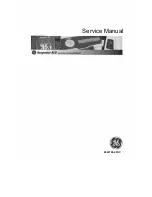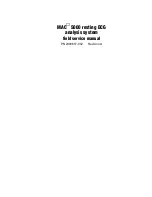
Function description
Chapter 3
OPERATION MANUAL
V2.4.0en/09.08.21//1.30
Minichiller®
33
3
Function description
3.1
Function description of the temperature control unit
3.1.1
General functions
Circulating coolers are temperature control units, which are mainly used to dissipate process heat as
well as a cost effective alternative to cooling water (drinking water).
Due to
powerful refrigeration engineering
,
short cooling rates
can be achieved.
3.1.2
Other functions
A pump ensures good circulation of the thermal fluid. The
LED display
shows the current tempera-
ture. A new setpoint can be easily entered with a simple keyboard.
Optionally, you can add a
digital interface (RS232)
to your temperature control unit.
Temperature control units with a heater have an
overtemperature protection to DIN EN 61010-2-
010 that is independent
of the control circuit.
3.2
Information on the thermal fluids
Non-compliance with the safety data sheet for the thermal fluid to be used
INJURIES
Risk of injury to the eyes, skin, respiratory tract.
The safety data sheet for the thermal fluid to be used must be read prior to using it and its
content must be respected.
Observe the local regulations/work instructions.
Wear your personal protective equipment (e.g. temperature-resistant safety gloves, safety
goggles, safety footwear).
Danger of slipping because floor and work area are contaminated. Clean the workplace; ob-
serve the proper disposal of thermal fluid and aids.
→
Non-compliance with the compatibility between the thermal fluid and your temperature control unit
MATERIAL DAMAGE
Observe the classification of your temperature control unit according to DIN 12876.
Ensure the following materials are resistant with respect to the thermal fluid: Stainless steel
1.4301/ 1.4401 (V2A), copper, nickel, FKM, red bronze/brass, silver solder and plastic.
The maximum viscosity of the thermal fluid must not exceed 50 mm²/s at the lowest working
temperature!
The maximum density of the thermal fluid may not exceed 1 kg/dm³!
Designation
Specification
Calcium carbonate per liter
≤ 1.5 mmol/l; corresponds to a water hardness of: ≤ 8.4 °dH (soft)
pH value
between 6.0 and 8.5
Ultrapure water, distillates
Add 0.1 g of sodium carbonate (Na
2
CO
3
) per liter
Not approved water
Distilled, deionized, demineralized, chloric, ferruginous, ammoniacal, con-
taminated or untreated river water or sea water
Volume circulated (at least)
3 l/min.
Thermal fluid: Water
Summary of Contents for MPC Minichiller 280
Page 1: ...MPC Minichiller...
Page 2: ......
Page 3: ...OPERATION MANUAL MPC Minichiller...
Page 4: ......
Page 10: ...OPERATION MANUAL Minichiller V2 4 0en 09 08 21 1 30 10...
Page 59: ...Annex Chapter 9 OPERATION MANUAL V2 4 0en 09 08 21 1 30 Minichiller 59 9 Annex...
















































